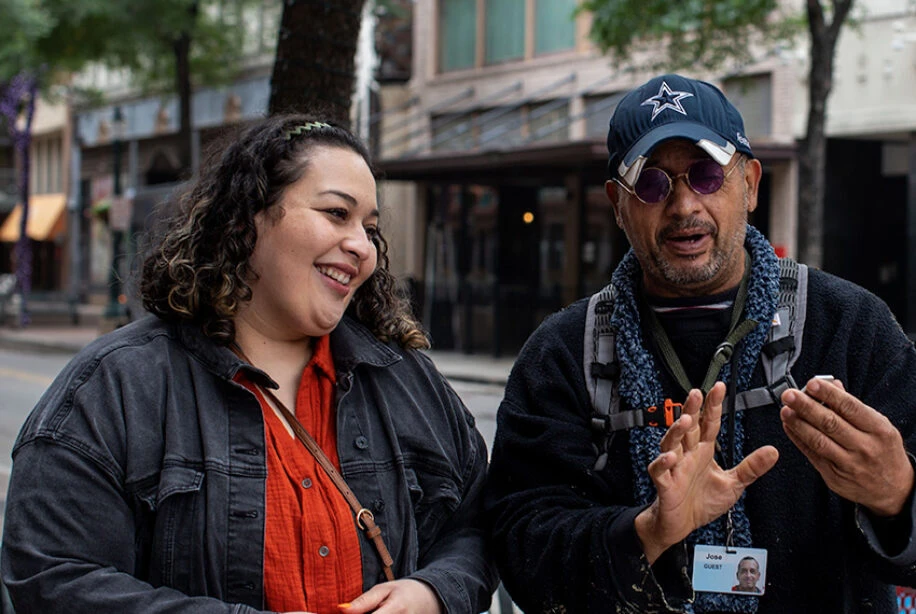New name.
Same mission.
LIRS is now Global Refuge.
Welcoming newcomers since 1939.
See Our EvolutionLIRS is now Global Refuge.
Welcoming newcomers since 1939.
See Our EvolutionThe browser you are using is not supported. Please consider using a modern browser.
Resources, stories, and information about asylum and those in need of protection.

At Global Refuge, we believe everyone—regardless of status—should be welcomed with dignity and compassion. We envision a just, fair, and orderly humanitarian protection system that does not discriminate against those who have access to and receive protection.
To learn more about the U.S. asylum process, policies, and initiatives, and how to join us in advocating for a humane asylum process for all those seeking protection, please learn more below!
At Global Refuge, we believe that a safe, humane asylum policy that honors the dignity of those seeking safety is possible.
We call on the administration and Congress to:

Join us in urging the Biden administration and lawmakers to reverse course on their misguided plans and implement solutions that welcome asylum seekers!
Raise Your VoiceAn asylum seeker is someone who flees their home country – and seeks refuge internationally – because they’ve faced persecution based on race, religion, ethnicity, social group, gender, or political opinion.
Seeking asylum is a legal right protected under U.S. and international laws. Unlike refugee protection which is granted from outside the country, U.S. law requires asylum seekers to file for protection from inside the U.S. or at a land border. Furthermore, a majority of Americans support providing access to asylum for migrants who are fleeing persecution in their home country.
A person seeking protection in the United States can apply for asylum through the affirmative or defensive process.
Affirmative: A person who is not in removal proceedings before an Immigration Judge (or an unaccompanied child) may apply for asylum through the U.S. Citizenship and Immigration Services (USCIS), a Department of Homeland Security (DHS) component agency. An applicant for affirmative asylum (Form I-589) must be physically present in the United States and may apply regardless of the manner of entry into the U.S. or current immigration status. If the USCIS asylum officer grants asylum, the person may apply for work authorization, social security card, and other benefits. Further, U.S. immigration law allows asylees to apply for lawful permanent resident (LPR) status after they have been physically present in the U.S. for at least one year since being granted asylum. If USCIS denies the asylum application, the applicant is referred to removal proceedings where they may renew their request in the defensive process.
Defensive: Occurs when a person requests asylum as a defense against removal from the U.S. In order for asylum processing to be defensive, the person must be in removal proceedings in Immigration Court with the Executive Office for Immigration Review (EOIR). Typically, an applicant is placed into the defensive asylum process because they were referred by USCIS after an asylum officer found them ineligible for affirmative asylum or were apprehended for unlawfully entering or remaining in the United States. Defensive asylum cases take place in a courtroom setting, but unlike the U.S. criminal court, individuals are not guaranteed an attorney.
For three years, an unlawful policy called Title 42 has been used more than 2.6 million times to block asylum seekers and expel migrants at the U.S. southwest border. The Trump-era policy effectively halted long-standing asylum law by baselessly using the Covid-19 pandemic to close the U.S. border to those seeking protection. Under the Trump and Biden administrations, this cruel and unjust policy has led to the expulsions of tens of thousands of migrants, a disproportionate number of whom are Black and Brown. While the rule used the guise of public health, it was rooted in xenophobia designed to stoke fear and deny asylum seekers at our southwest border the right to dignity, safety, and the preservation of the family unit.
To learn more about the policy and Global Refuge’s vision for welcome post-Title 42, visit our page: What Should Welcome Look Like After Title 42?
The Biden administration lifted Title 42 in May 2023. Migrants seeking asylum were again processed under Title 8 of the U.S. Code, a law that has been in place for almost three decades and allows migrants to request humanitarian protection during removal proceedings. Nevertheless, in January 2023, the Biden administration announced troubling border policies to replace Title 42 once the policy is lifted:
Asylum ban: The Biden administration has proposed a new rule which would severely limit access to protections. When this rule goes into effect, it will bar access to asylum protections based on the manner of entry and transit to the United States. People would be unable to seek asylum if they failed to ask for protection in another country during their journey to the United States or if they entered without notifying a border patrol agent. Visit our page here to learn more about this rule.
Enhanced Use of Expedited Removal: The Biden administration has shared plans to expand the use of a process that would force asylum seekers to defend their cases within days while in the custody of Customs and Border Protection (CBP). Expedited asylum screenings disregard the trauma people arriving at the border have experienced and significantly limit access to legal counsel. When the Trump administration enforced similar rapid asylum screenings, deportations of people with legitimate asylum claims drastically increased.
Global Refuge unequivocally opposes such policies, which penalize the most vulnerable for seeking protection when in dire situations. They are in stark contrast to our faith teachings that call us to welcome the stranger, in addition to our moral and legal obligations as a country.
The administration has also announced measures to expand pathways to protection that includes humanitarian parole programs, which allow a few nationalities temporary stay in the U.S. if they can acquire U.S. sponsorship, have a valid passport, and arrive by air – requiring significant resources that people seeking protection often do not have. While the parole programs have been effective in providing additional paths to protection for some, these measures cannot act as a substitute for the legal rights provided to people fleeing persecution and violence.
Asylum seekers who arrive at ports of entry are initially detained by U.S. Customs and Border Patrol (CBP). These facilities are jail-like and are inappropriate for asylum seekers who face harrowing experiences on their journey in search of safety. While people are “generally not to be held for longer than 72 hours” in CBP custody, reports indicate they are held for longer periods of time. After being processed by CBP, an asylum seeker may be transferred to Immigration and Customs Enforcement’s (ICE) custody, where numerous cases of abuse have been found over the years. Rather than address these challenges, the Biden administration has announced it is shifting to an enhanced expedited removal process, in which asylum seekers will go through asylum screenings in CBP Custody and promptly deported if they don’t receive a positive determination.
If CBP or ICE allows asylum seekers to be released into the U.S., they can remain while awaiting the outcome of their immigration court case, which can take an average of four to five years. Currently, there is a significant backlog of over 1.6 million pending asylum applications. While waiting, asylum seekers are ineligible to receive traditional resettlement services provided to refugees. In addition, they must wait 150 days after they submit a complete asylum application to file for a work permit and another 30 days to receive it from the government. However, with 1.5 million pending work permit applications in the immigration backlog, asylum seekers could wait an additional 3 months before receiving a decision on their work permit application.
Other challenges include language barriers, securing employment and housing, finding qualified and affordable legal representation, discrimination, and fear of deportation.
Asylum seekers need support as they navigate our complex and lengthy humanitarian protection system. For this reason, Global Refuge advocates for a protection-centered scalable response that prioritizes providing case management services to support the needs of asylum seekers.
Global Refuge Welcome Centers provide protection-centered and trauma-informed case management services to asylum seekers throughout the country. These services include, a tailored service plan, mental health screening and referral to mental health and psychosocial support, legal services, connection to community-based resources, education services, and emergency, food, housing, and financial assistance.
Once a person is granted asylum they are now considered an asylee. They can live and work in the U.S., as well as travel abroad. An asylee can also apply for a lawful permanent residence after one year of U.S. residency and for U.S. citizenship four years after that. They can also apply to be reunited with family members to receive asylee status after two years.

Explore the many ways to support Global Refuge.
Get InvolvedExplore the many ways to support Global Refuge.
Get Involved